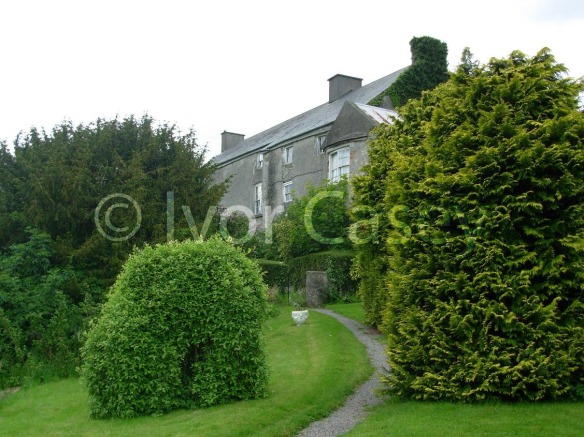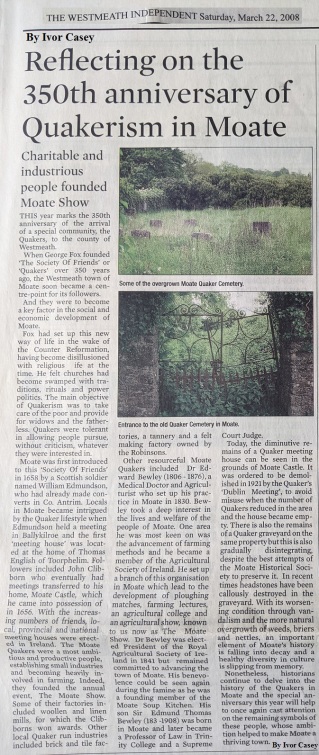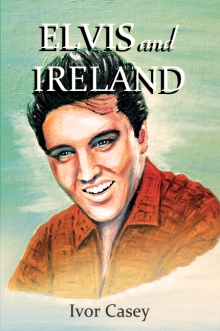IN late 2012 I established Appello Press as the means in which to self publish my own book, Elvis and Ireland and to subsequently continue as a publishing house, with an aim to support young aspiring Irish writers. Appello Press is completely independent, without any financial backing beyond my own financial input. It was purely established out of a love of literature and from an understanding of how many writers with tremendous passion and integrity often get overlooked in the business.
Appello Press has spent its first two years in operation promoting its very first work Elvis and Ireland, written by myself, and has managed to grab some significant headlines. Elvis and Ireland has earned rave reviews from journalists around the country with features by Eamonn McCann in Hot Press and Barry Egan in The Sunday Independent as well as substantial and positive features in Cork’s The Evening Echo and Southern Star, The Westmeath Independent, Dun Laoghaire Gazette, Southside People, The Donegal Democrat and Waterford Today. Release of this book has also spread to hardcopy and online publications in Britain, Spain, Portugal, Germany, Memphis and New York. Elvis and Ireland has gained widespread attention through shows such as RTE’s The Ryan Tubridy Show, The Ronan Collins Show and The Late Date. As a first time author, I was also fortunate to secure appearances on TV3’s The Morning Show, Newstalk FM’s Sean Moncrieff show, RTE’s The Mooney Show, Radio Nova, Dublin South FM, Dublin City FM, LMFM, Midlands 103 FM’s Art Show and Spain’s iTalk FM.
Elvis and Ireland received its official launch in May 2013 with the book being launched and endorsed by Barry Devlin of legendary Celtic Rock Group ‘Horslips’ who called it “a terrific read with fascinating research”. Also, in attendance at the launch was artist, writer and broadcaster Don Conroy, Hollywood animator and director Jimmy Murakami, documentary maker Sé Merry Doyle and art curator Tony Strickland. International superstar Bono of U2, in a separate meeting with myself, gave his thumbs up for the book stating that he was “delighted to be part of the whole thing”. Appello Press has worked vigorously to secure publicity and widespread attention for its first publication and plans to work with the same tenacity on all its future projects.
A new and début poetry collection published by Appello Press, entitled Photons by Dalkey writer Peter Donnelly was officially launched in April 2014 by author and playwright, Professor Frank McGuinness. The launch took place at the UCD Campus Bookshop with a large crowd including poet Harry Clifton all out to greet the author and join in the support for the publication. Photons is noteworthy for including the first ever English translation of Dante’s Canto X, which gained the book a mention in the lecture halls of the City University of New York. Recognised for his significant talents, Peter Donnelly’s poetry collection has also been specially selected for the UCD James Joyce Library Special Collections, where Appello Press is proud to see a first edition of Photons sit among the first editions of works by legendary greats such as W.B. Yeats.
During his speech, McGuinness stated, “What dexterity of meters there is in it, what splendid sensitivity to the strange changes of the natural world. What sheer delight in the diversity of themes and the diversity of tones, giving this verse its voice, a voice that is already sounding its sureness of identity. A voice capable of characterising its deeper self and finding in that depth much to fear and much to identify”.
Appello Press has worked determinedly to secure attention for Photons, with achievements including front page coverage on the Dun Laoghaire Gazette, a feature in the Southside and Northside People and the Westmeath Independent, as well as the surprisingly difficult to enter, Dalkey Community News. Peter was featured as a guest on ‘Bookbound’ with Paul O’Doherty on Dublin City FM and has had reviews and features on Headstuff.org and Writing.ie. Appello recorded and edited a video of the book launch, which is available to view on YouTube for publicity and posterity. We also captured and produced a wide variety of photographs from the launch, and another reading and signing at the Dalkey Ladies Club, all adding to the publicity and posterity which places the author and their work on a platform.
As was the case with Elvis and Ireland every major arts programme and journal was pursued, with all press releases highlighting the special and original angles of these books and the authors behind them, as well as the ambition of Appello Press to make a stand in supporting young, aspiring talents who exhibit unique qualities.
In addition to the impassioned task of gaining vital media coverage to raise awareness for the authors and their books, is the attempt to get bookshops to stock the publications. In usual circumstances the publications of an independent publisher would be placed last for consideration and in many cases be rejected because of not being listed with wholesalers. Nonetheless, as was the case of securing publicity, Appello worked arduously to have Elvis and Ireland stocked with Easons, Ireland’s largest wholesaler and bookshop chain. Other independent stores who showed their support to an independent publisher included Tower Records, Celtic Note, Coleman Quirke and in the case of Photons and with the help of its author, Books Upstairs, The Company of Books and the UCD Campus Bookshop. Both Elvis and Ireland and Photons are available to buy on Amazon online stores across the world (See links below).
Appello Press hopes to continue as a means to support new, aspiring and upcoming talent. In addition Appello Press has now branched into self publishing in which people can hire our services to make their dreams become a reality. Appello has also now begun to focus on digital marketing and with the previous successes with promotion, such as achieving a 4,000 plus Facebook following for Elvis and Ireland, intends to grow and expand in this area. So far Appello has successfully helped visual artists with their exhibitions, as well as setting out a profile and beginning their platform in the art world. For more information keep an eye on our ‘Digital Marketing’ section at www.appellopress.com
“Elvis and Ireland” is available across the world from Amazon in both paperback and Kindle format and can also be purchased through America’s Barnes and Noble online store. (RRP€14.99)
“Photons” is available across the world from Amazon in paperback and can also be purchased through America’s Barnes and Noble online store.
- Ivor Casey







